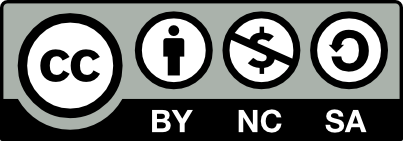Written by Kameshwaran.C,
Intern-Lex Lumen Research Journal,
June 2025
The exponential growth of India’s digital economy has necessitated a robust legal framework to ensure fair competition, protect consumers, and prevent monopolistic practices. Classic competition laws, as regulated under the Competition Act, 2002, were not fully capable of dealing with the distinct issues presented by digital markets like network effects, dominance of data, platform neutrality, and gatekeeping. Realizing this, the Committee on Digital Competition Law (CDCL) forwarded its report and tabled the Draft Digital Competition Law, 2024. The draft law is intended to supplement the current framework and propose ex ante regulation to curb anti-competitive behaviour by big digital firms, referred to as Systemically Significant Digital Enterprises (SSDEs).
Overview Of The Draft Digital Competition Law, 2024:
The Draft Digital Competition Law (Ddcl), 2024, Suggests A Paradigm Shift In The Antitrust Regime By Embracing Proactive, Ex Ante Rules As Opposed To The Conventional Ex Post Model Of Enforcement Under The Competition Act, 2002.
KEY FEATURES OF THE DDCL, 2024:
- Systemically Significant Digital Enterprises (SSDEs):
SSDEs are digital businesses that satisfy specified financial and user requirements. Once appointed, these organizations are required to adhere to a new range of duties to ensure equitable digital market practices.
- Ex Ante Obligations:
Prohibition of self-preferencing, limiting third-party interoperability, or unfair bundling of services. Requirement for data portability and transparency in algorithmic decision-making.
- Digital Market Unit (DMU):
A specialized wing of the Competition Commission of India (CCI) to track and enforce the digital law framework.
- Penalties and Compliance:
Provisions for fines of up to 10% of worldwide turnover in case of SSDEs committing a breach of obligations. Structural remedies in extreme cases as an option
REQUIREMENT OF A DIGITAL-SPECIFIC ANTITRUST FRAMEWORK:
Shortcomings of the Competition Act, 2002:
The Competition Act, 2002, while all-encompassing, has been reactive. Digital markets are fast-changing, and by the time a competition issue is tackled under the current framework, permanent market damage can have been done.
Case Law Reference:
Google Inc. v. CCI (2018): The CCI held Google liable for abusing its dominance in search and advertisement services. The adjudication, though, took many years, pointing to delays in ex post remedies.
Matrimony.com Ltd. v. Google LLC (2018): The CCI levied a ₹135.86 crore fine on Google for unjust search bias but the relief failed to properly address market distortions.
These instances highlighted the difficulty in confronting algorithmic transparency and self-preferencing behavior on digital platforms using tools available today.
International Inspiration and Comparative Framework:
India draws inspiration from international trends, especially from the European Union’s Digital Markets Act (DMA). The DMA seeks to identify “gatekeepers” and place them under a set of pre-defined dos and don’ts. India’s SSDE designation takes a similar approach.
EU Digital Markets Act (DMA) – Key Lessons:
Prescribes obligations like prohibition of self-preferencing and mandatory data sharing. Significant for India, as the digital economy here mirrors the platform-centric model seen in Europe and the U.S.
MAJOR OBLIGATIONS FOR SSDES UNDER DDCL:
- Self-Preferencing Prohibition:
Prevents SSDEs from privileging their own goods or services on their platforms. E.g., promoting their own shopping results on a search engine over third-party listings.
Case Law:
Google Shopping Case (EU Commission, 2017): €2.42 billion penalty for self-preferencing its shopping comparison feature. Similar situations abound in India, e.g., Flipkart or Amazon reportedly prioritizing in-house labels.
- Data Use Restriction:
Restricts the application of non-public information from business users against them.
Reference:
Amazon EU (2020): European Commission opened an investigation into Amazon’s use of seller data to sell its own private labels. Indian concerns are reflective of similar practices.
- Interoperability and Portability:
SSDEs should enable users to move their data across platforms and provide inter-platform functionality.
- Tying and Bundling Prevention:
SSDEs cannot make access to one service dependent on use of another. Enforcement and Compliance Mechanisms
Role of the Digital Market Unit (DMU):
- Investigates infringements.
- Recommends structural or behavioral measures.
- Carries out market studies and sector-specific investigations.
PENALTIES:
- Fine up to 10% of worldwide turnover.
- Risk of de-designation or market breakup in severe cases.
Compliance Reporting:
SSDEs are required to file periodic reports to prove compliance with obligations.
Challenges and concerns:
Albeit its prospects, the DDCL is not sans criticism.
- Legal and Procedural Overlaps:
Ambiguity remains regarding the overlap between the DDCL and Competition Act, especially on jurisdictional issues.
- Due Process and Fair Hearing:
Critics argue that the ex ante obligations may amount to legislative overreach, curtailing business freedoms without sufficient proof of anti-competitive conduct
- Compliance Burden:
Smaller digital players transitioning into SSDE status may face undue compliance burdens and legal uncertainty.
JUDICIAL REGULATION AND CONSTITUTIONAL IMPLICATIONS:
Article 19(1)(g) – Freedom to Trade:
Any requirement under the DDCL shall be in line with reasonable restrictions under Article 19(6). Across-the-board prohibitions or excessive structural solutions in the absence of sufficient justification can elicit judicial review.
Doctrine of Proportionality:
As enunciated in Modern Dental College and Research Centre v. State of Madhya Pradesh (2016), any limitation on basic rights must satisfy the principle of proportionality.
Recommendations for Effective Implementation:
- Clear distinction between DDCL and Competition Act, 2002 to prevent forum shopping and jurisdictional uncertainty.
- Capacity development within the CCI and DMU, including digital experts and data scientists.
- Mechanisms of stakeholder consultation, with involvement of startups, consumer associations, and SSDEs.
- Sunset Clauses or Periodic Review of SSDE commitments to provide regulatory flexibility.
Conclusion:
The Draft Digital Competition Law, 2024 marks a revolutionary shift in India’s competition regulation regime. With digital platforms spreading enormous influence over markets and consumer decisions, a forward-looking, ex ante approach is essential to avoid dominance abuse, promote market contestability, and safeguard innovation. The DDCL fills the enforcement loopholes of conventional antitrust law and aligns India with global best practices. Its success will nevertheless hinge on enforceable balance, institutional preparedness, and sustained stakeholder interaction. With proper protection and calibrated implementation, the DDCL can realistically usher in a new era of fair competition in India’s digital economy.
References:
- Committee on Digital Competition Law, Report and Draft Bill, Ministry of Corporate Affairs, Government of India, March 2024.
- Competition Act, 2002 (as amended by the Competition Amendment Act, 2023).
- Google Inc. v. Competition Commission of India, 2018 SCC OnLine CompAT 1.
- Matrimony.com Ltd. v. Google LLC, Case Nos. 7 & 30 of 2012, CCI.
- European Commission, Case AT.39740 – Google Search (Shopping), 2017.
- European Commission Press Release, Amazon Antitrust Investigation, 10 Nov 2020.
- European Union Digital Markets Act (Regulation (EU) 2022/1925).
- United Kingdom, Digital Markets, Competition and Consumers Bill, 2023.
- Germany’s Act Against Restraints of Competition (GWB-Digitalisierungsgesetz), 2021.
- Modern Dental College and Research Centre v. State of Madhya Pradesh, (2016) 7 SCC 353.


